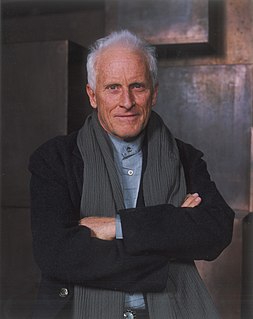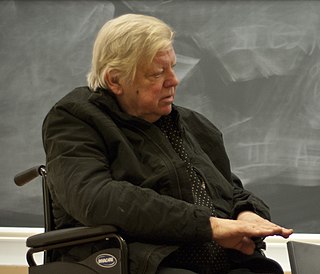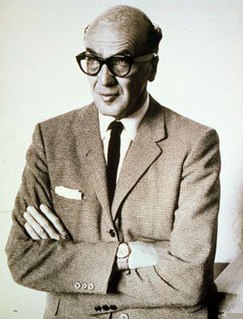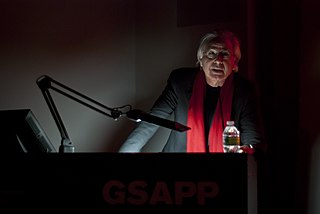A Quote by Antoine Predock
The concept of architecture as analogous to landscape is something that has interested me for a long time.
Quote Topics
Related Quotes
I've always been interested, - if you look back at my work from the beginning, really - I've always been interested in the idea of the artificial landscape. Reforming the landscape. Architecture being a method of reforming the earth's surface. We reshape the earth's surface, from architecture to paving streets, to parking lots and buildings that are really reforming the surface of the earth. Reforming nature, taking over what we find. And we're mushing it around and remaking a new earth - or, what we used to call Terra Nova.
The pleasure a man gets from a landscape would [not] last long if he were convinced a priori that the forms and colors he sees are just forms and colors, that all structures in which they play a role are purely subjective and have no relation whatsoever to any meaningful order or totality, that they simply and necessarily express nothing....No walk through the landscape is necessary any longer; and thus the very concept of landscape as experienced by a pedestrian becomes meaningless and arbitrary. Landscape deteriorates altogether into landscaping.
At a certain point, I got interested in set design for the theater. I was interested in architecture, but I was taking photographs at the same time, and architecture, though it had the design element, it didn't have the narrative, emotional element that I was looking to do. I ended up painting for a while. I was dancing around it, and I realized that all these different interests came together in filmmaking.
Painting allows me to use other portions of my brain pleasurably. Irony plays no part in what or how I paint. I paint the particular subject matter not to make polemical points but because I am interested in the human imprint on the landscape. I paint the landscape of my time and place with the stuff in it.
I was interested in theatre, and the only experience that I had in high school was as an actor. But when I got in Conservatoire, my teachers would give me a lot of flack because I wasn't rehearsing my lines; I'd be doing stage management. I was interested in sound. I was interested in architecture. I was interested in every aspect of theatre.
My dad and some teachers were constantly pushing me to do better than I was doing because they all knew that I could. I was not interested in what they wanted me to do well in at the time, but still, the concept that there's a great land of opportunity out there, and all you have to do is go attack it, was not something foreign to me. It's why I'm one of the few members of my family that left home.
I have long been interested in landscape history, and when younger and more robust I used to do much tramping of the English landscape in search of ancient field systems, drove roads, indications of prehistoric settlement. Towns and cities, too, which always retain the ghost of their earlier incarnations beneath today's concrete and glass.
I'm interested in the way the whole cultural landscape can shift over time. Okay, this will seem like a silly example, but look at the whole discourse around "selling out," a concept people say is irrelevant because there's no more distinction between mainstream and underground, inside and outside (which I don't really believe, but that's another issue).





































